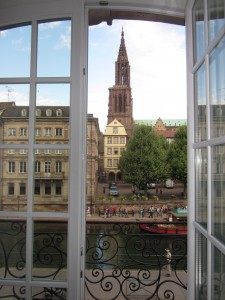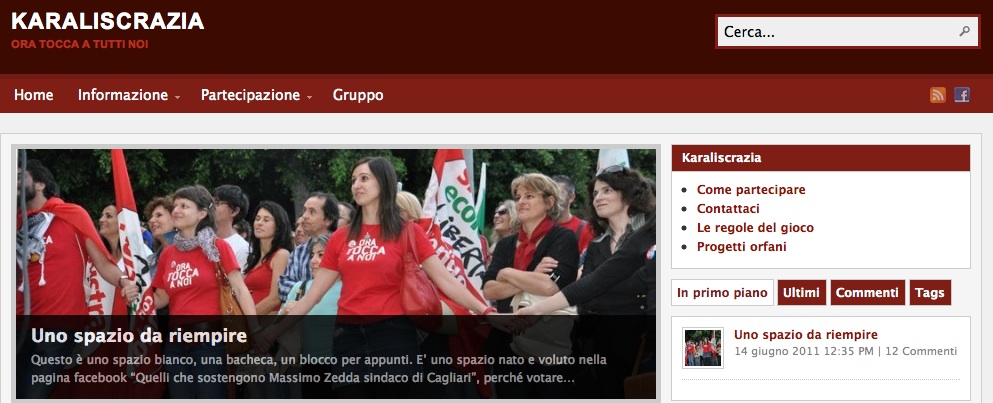 Il primo luglio ho iniziato un nuovo lavoro al Consiglio d’Europa. Ci sarà tempo per raccontare cosa, esattamente, sto combinando qui. Il punto, per ora, è che sono ridiventato un emigrante (ho passato un paio d’anni a Londra nei 90), unendomi al gruppo sempre più numeroso degli italiani che decidono di tentare un percorso all’estero. Ho affittato un appartamento a Strasburgo, sul Quai des Bateliers; dalle mie finestre vedo la cattedrale e il fiume.
Il primo luglio ho iniziato un nuovo lavoro al Consiglio d’Europa. Ci sarà tempo per raccontare cosa, esattamente, sto combinando qui. Il punto, per ora, è che sono ridiventato un emigrante (ho passato un paio d’anni a Londra nei 90), unendomi al gruppo sempre più numeroso degli italiani che decidono di tentare un percorso all’estero. Ho affittato un appartamento a Strasburgo, sul Quai des Bateliers; dalle mie finestre vedo la cattedrale e il fiume.
Frequentando i blog e i social network mi ero fatto l’idea che molti dei nostri connazionali, trasferendosi all’estero, lo facciano sbattendo la porta. Avevo in testa una specie di tag cloud, dove fluttuano, a grandi lettere colorate, espressioni come “paese bloccato”, “classe dirigente incapace”, “non viene riconosciuto il talento individuale”, “refrattari all’innovazione”. Ma poi, a pensarci bene, praticamente nessuno degli italiani che conosco e che lavorano all’estero (e sono tanti) usa queste espressioni. Qualche volta ho colto un po’ di amarezza ironica nel confrontare gli spazi aperti di Londra o Berlino con quelli, molto più ristretti, di Cosenza o Sassuolo, ma suvvia: non è corretto confrontare Londra con Sassuolo. Ci sono alcune città-mondo, come dice Stefano Boeri, e molti emigranti qualificati finiscono lì. In Italia di città così non ne abbiamo, ma questo è vero per la maggioranza dei paesi europei. Le frasi di questa speciale tag cloud, mi sembra, vengono usate più da persone che sono rimaste in Italia, e che si sentono, a ragione o a torto, sottoutilizzate.
Io non mi sento affatto così: non ho l’impressione che il mio talento, ammesso che ne abbia, sia misconosciuto nel mio paese. Sono all’estero in primo luogo perché il mio percorso mi porta a ricercare il confronto con i colleghi di tutto il mondo, e in secondo luogo perché mi sento fortemente un patriota europeo, uno che pensa che l’Italia trovi il suo senso in Europa e che l’Europa non abbia senso senza l’Italia, l’autonomia della sua società civile, la sua capacità di fare senza delegare tutto a uno stato-mamma e senza degenerare nell’individualismo estremo. Adesso che me ne sono andato dall’Italia spero di esserle ancora più presente, ancora più utile. Lavoro in un’istituzione internazionale da italiano, e voglio essere uno snodo, un canale di comunicazione tra il mio paese, il continente, e il pianeta: senza arroganza, ma anche senza soggezione. Usatemi.
